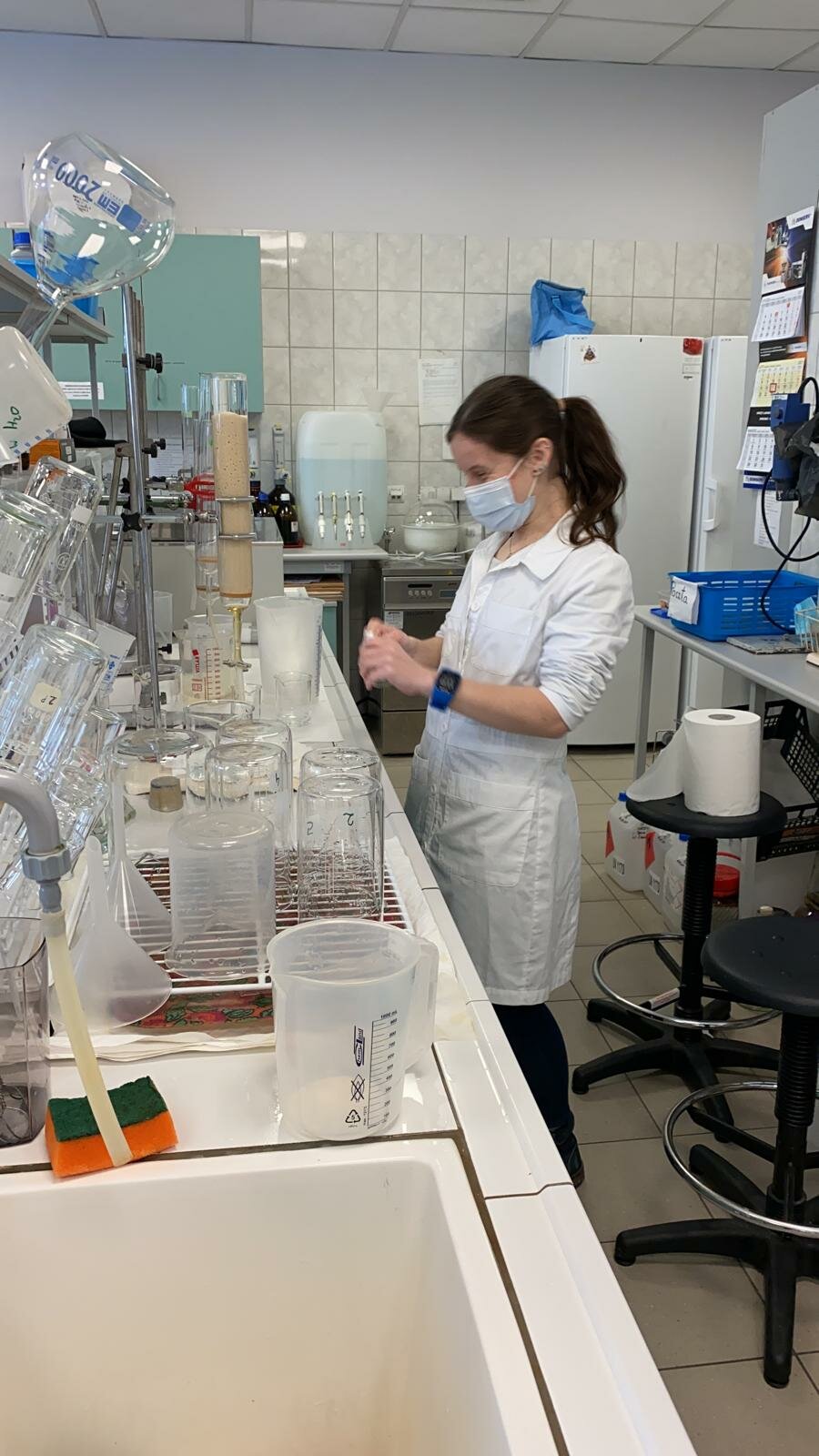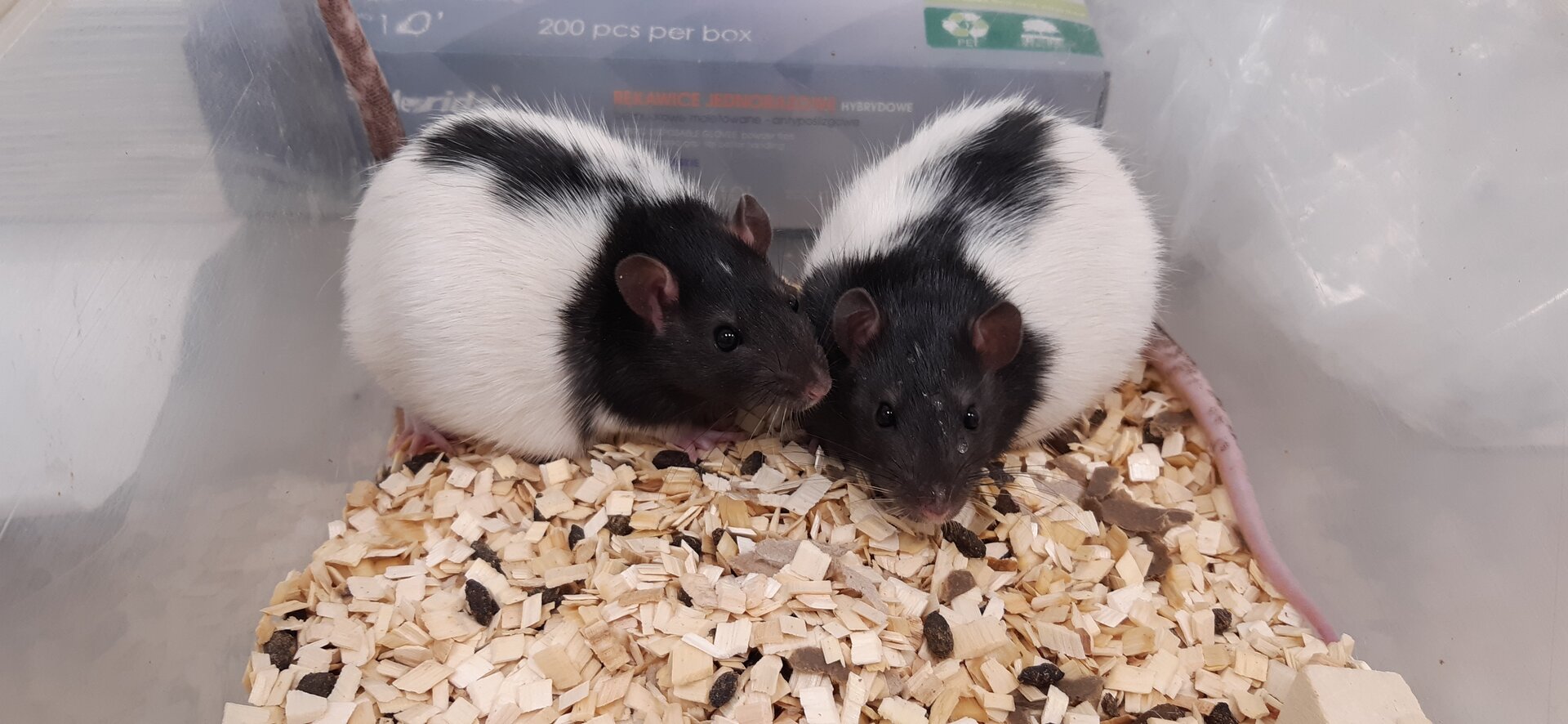– Research work has always been my dream, but this scientific bug was instilled in me during my first year of veterinary studies by prof. Agnieszka Noszczyk-Nowak. I love challenges, and science is one great challenge – admits the doctoral student. While still in the 5th year of veterinary studies, Joanna began her studies in medicine at Wroclaw Medical University.
The research conducted by the PhD student is a combination of these two fields, combines the veterinary and medical aspects and is closely related to translational medicine. The "ProHum" program in which Joanna participates, financed by EU funds, assumes interdisciplinary studies and allows students to conduct research on the border of medicine and veterinary medicine.
In addition to the main supervisor, prof. Agnieszka Noszczyk-Nowak from UPWr, the doctoral student has a second supervisor – prof. dr hab. Jacek Gajek from the Wroclaw Medical University, a specialist in cardiodiabetology.
The subject of Joanna's work is the analysis of the biological potential of pomegranate peel extract in a rat model of metabolic syndrome.

Metabolic syndrome is not a separate disease entity. Still, it is a set of interrelated pathologies, the coexistence of which contributes to a significant increase in the risk of cardiovascular complications, primarily ischemic heart disease, which is the main cause of mortality in highly developed societies. The criteria that define metabolic syndrome (MetS) include: central obesity, dyslipidemia, arterial hypertension and carbohydrate disorders. It is based on the modern lifestyle based on highly processed food, low physical activity, life in a constant run and ubiquitous stress. It is a problem on a global scale and is classified as a civilization disease.
In her research, the doctoral student tries to check whether the supplementation of the polyphenol-rich pomegranate peel extract inhibits the progression, alleviates or even reverses the individual components of the metabolic syndrome, and translates into health benefits in the context of the metabolic syndrome.
Previously, the beneficial effect of pomegranate juice alone was proven in studies on animal models as well as on selected patient populations. The polyphenolic composition of peels, a by-product of the food industry, is similar to that of juice. Joanna wants to check whether the bioavailability of polyphenols from the peel is equal to that of pomegranate juice and whether there is a chance to use the peels in the production of functional food as a dietary intervention in metabolic syndrome.
– The entire study was carried out in an animal model, "Zucker Diabetic Fatty" (ZDF) rats, which have a mutation in the leptin receptor gene. These individuals are characterized by obesity, dyslipidemia, arterial hypertension and impaired glucose tolerance and thus are a good representation of all components of the metabolic syndrome. My job lasted 8 weeks. Veterinary education helped me a lot. I was able to assess the behaviour of the rats myself and carry out the acclimatisation – says the doctoral student.
During the study, the effect of the extract on the lipid profile, glycemia, heart function and body weight of ZDF rats was analyzed. Measurements were also carried out to estimate the oxidative-antioxidant status in the tissues and in the serum, and the histopathological changes were assessed. The PhD student focused mainly on the effect of the extract on the cardiovascular system, including using biomarkers of heart failure and mediators of inflammation.
Oxidative stress and chronic inflammation play major roles in the pathophysiology of metabolic syndrome. Therefore, it is important to assess the impact of polyphenolic compounds contained in pomegranate peels in this respect. The doctoral student is currently analyzing the data. Right now, on the basis of the results obtained, it is possible to observe a significant reduction in body weight. The extract also appears to have a beneficial anti-inflammatory effect. However, no significant changes were noted in the histopathological assessment of tissues or in echocardiographic measurements of the heart function performed during the experiment. Joanna is currently working on the analysis of data related to blood counts and a detailed assessment of the antioxidant potential of the extract.

– Polyphenols derived from plant materials have antioxidant, anti-inflammatory, vasoprotective, antimicrobial, antiallergic and anti-cancer properties. In vivo studies on animal models have shown their beneficial effects on the normalization of cholesterol levels, better glycemic control and weight reduction. Pomegranate is a promising source of polyphenols, the supplementation of which could effectively modify the course of the metabolic syndrome. The introduction of functional foods to the market could improve the outcomes of therapy, which is mainly based on lifestyle changes. The most important is the modification of the diet, which is to contribute to the reduction of body weight and an increase in physical activity. However, this is the most difficult for the patient – explains the doctoral student.
In the future, Joanna would like to continue combining research in the field of human medicine and veterinary medicine. She prefers a holistic and interdisciplinary approach to research. Especially in the field of translational medicine, she would like to conduct research according to the bench-to-bedside scheme, which is based on the application of solutions developed during research in the laboratory for practical use in work with patients, in clinical practice, diagnostics or in treatment.